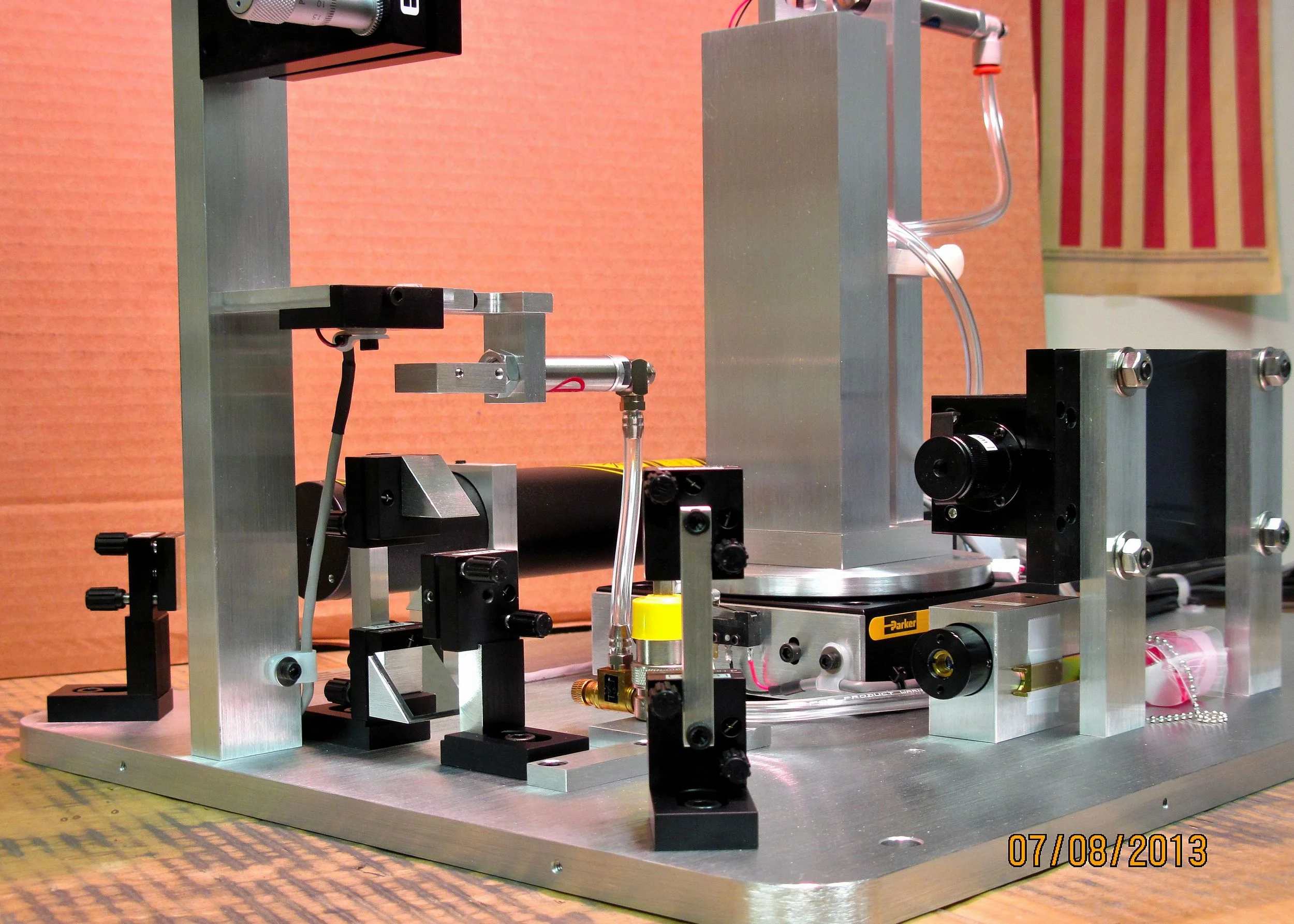Index Vs Temperature Option (dn/dT)
Option 2010-TC allows determination of temperature coefficient of refractive index by measuring index for thin films and bulk materials at temperatures as high as 200˚ C. Temperature coefficient data can also be used to calculate thermal expansion coefficients (Kang et al, Appl. Phys Lett. 81, 1438 (2002)).
In the prism coupling technique, measurement of index at elevated temperature is complicated by the fact that the sample being measured is in intimate contact with the prism on the front side and the coupling mechanism on the back. If only the prism, the sample, or the coupling mechanism is heated, there will be significant temperature gradients across the prism/sample/coupling head interface, creating uncertainty in the temperature of the sample. In addition, since the refractive index of the prism also changes with temperature (and accurate knowledge of the prism index is required for accurate sample measurements) any gradient in the prism in the prism temperature will cause uncertainty in the prism index which will affect measurement accuracy.
Metricon’s patented design for option 2010-TC overcomes these problems by employing three separate heating elements and two independent temperature controllers to heating both the prism and the coupling head/sample to the same temperature. The location of the heating elements is optimally located to minimize temperature gradients. One thermocouple in direct contact with the prism a few millimeters away from the contact point with the sample is used to control the temperature of the prism. Another thermocouple buried on the axis of the coupling head a distance of 2 mm from the back surface of the sample maintains the sample at the same temperature at the prism. Since the prism and the back surface of the sample are at the same temperature, temperature gradients are effectively eliminated.
Careful design in the location of thermal insulation also minimizes temperature gradient effects and allows the heating of only a very small mass. As a result, the total thermal load on the system is less than 20 watts and temperature of the rest of the system is unaffected so that option 2010-TC is fully compatible with all other Model 2010/M options (loss, additional lasers, detectors). Conversion from normal measurements to index vs temperature measurements can be accomplished in less than one minute and requires only the addition of a specially designed prism clamp.
Best accuracy in measuring temperature coefficients is obtained by raising the sample to as high as temperature as possible (without undergoing glass transition temperatures) since this results in the largest index change compared to room temperature. However, raising the prism to high temperatures increases the risk of prism breakage due to stress on the prism caused by difference in thermal expansion coefficients of the prism and the mounting clamp. The mounting clamp for the prism for option 2010-TC has been carefully designed to minimize thermal stresses and can safely be taken to 200˚ C.
Finally, as mentioned earlier, accurate measurements of sample index requires accurate knowledge of prism index vs temperature. Temperature coefficient of index is provided with very prism ordered with this option. Once the temperature coefficient for the prism has been specified, the user only needs to enter measurement temperature to the control software and the refractive index of the prism will be correctly adjusted.
Specifications
- Temperature range: 25˚to 200˚ C (typical 25˚ minimum ambient inside optics module due to laser heating).
- Stabilization time: 3 minutes after 20 degree sample temperature change, 10 minutes after 50 degree temperature change.
- Sample temperature uncertainty (estimated): less than 1˚ C for temperatures up to 75˚ C. Less than 2˚ C for temperatures up to 200˚ C.
- Prism temperature uncertainty (estimated): less than 1˚ C for temperatures up to 75˚ C. Less than 2˚ C for temperatures up to 200˚ C.
- Measurement procedure: User installs special prism clamp for thermal option (requires one minute), sets temperature in thermal controllers, and specifies measurement temperature in software. Measurement can typically be made after 3-10 minute temperature stabilization time.


